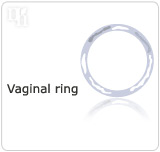
During menopause, your body goes through a great deal of changes. These changes are the result of hormonal imbalances in your body. Your hormone levels fluctuate wildly during this time of your life. Hormones are very important to you and your body. They help to regulate many of the body's functions by acting as chemical messengers.
When one part of your body wants to communicate with another part, it releases hormones. It's this system that alerts you as to when you're tired, hungry, or in pain. When your hormone levels drop, as can happen during menopause, you may experience lots of side effects, called the symptoms of menopause. Although menopause symptoms are perfectly natural, you may still feel that you want relief from them. There are a number of ways in which you can try to combat the symptoms of menopause. Hormone replacement therapy (HRT) is one method of treatment. Continue reading to learn more about HRT.
What Is HRT?
When your hormone levels drop during menopause you may experience all of the correlating symptoms. Common symptoms of menopause include vaginal dryness, hair loss, osteoporosis, memory lapses, fatigue, and breast pain. They are caused by fluctuating levels of hormones in your body. You may be able to combat the symptoms of menopause by replacing the hormones you've lost during menopause. HRT is a method of hormone replacement that is based on this theory.

HRT can be used to replenish levels of estrogen, progesterone, testosterone, and other hormones. HRT doses can be administered through patches, creams, troches, intrauterine devices, gels, vaginal rings, or by injection. Although HRT has been shown to treat diminished libido, osteoporosis, hot flashes and other common symptoms of menopause, studies have shown that undergoing HRT comes with risks. Keep reading to learn about the risks of HRT.
Is HRT Safe?
A study by Women's Health Initiative suggested that patients receiving HRT had a higher incidence of heart attacks, strokes, and breast cancer. These findings were supported in a larger study conducted in the UK, known as the Million Women Study.
For this reason, it is recommended that women receiving HRT should have the smallest dose possible and for the shortest period of time possible, thereby reducing the risk of these side effects. You should consult a relevant health professional before commencing with any such treatment. It is also advisable to research alternative methods to HRT, such as herbal remedies and lifestyle changes.
